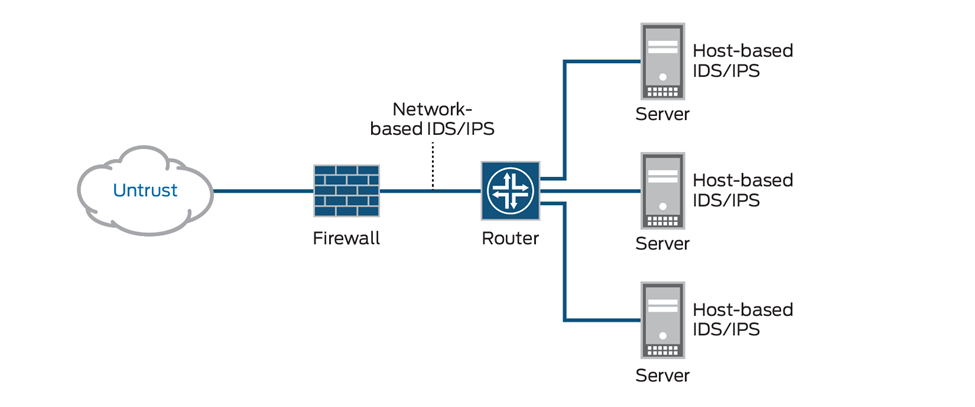Intrusion Prevention System (IPS) is a crucial component of a network security system, designed to monitor and protect the network from intrusion and attacks. IPS provides an additional layer of protection alongside other security measures such as firewall and Intrusion Detection System (IDS).

Why is IPS necessary?
An Intrusion Prevention System (IPS) is essential in a network environment because it plays a crucial role in protecting the system from intrusion and attacks. Here are some reasons why IPS is necessary:
- Early attack detection: IPS has the ability to detect intrusion and network attacks as soon as they begin. This helps prevent them before they cause serious consequences or damage to the system.
- Firewall complement: While a firewall can block unwanted connections to and from the network, it cannot prevent all types of attacks. IPS provides an additional layer of protection by detecting intrusion behaviors based on evidence and handling them.
- Automatic response: IPS has the ability to take automatic measures to prevent intrusion activities. This helps reduce human reaction time, ensuring that attacks cannot spread and cause serious consequences.
- Protection against new threats: Network attacks are constantly evolving and changing to avoid detection. IPS is regularly updated to identify and respond to new and advanced threats.
- Network traffic control: IPS helps control network traffic by blocking unsafe or unwanted connections. This helps improve network performance and keeps the network running smoothly.
- Compliance and data security: With the ability to monitor network traffic, IPS can help enhance compliance with regulations on personal data security (such as GDPR) by preventing unauthorized access to sensitive data.
Benefits of Intrusion Prevention System (IPS) solution.
An Intrusion Prevention System (IPS) brings many important benefits to the network environment and security system. Here are some key benefits of IPS:
- Detection and prevention of intrusions: IPS helps detect and prevent network intrusions and attacks, including unauthorized access and complex attacks such as Denial of Service (DoS) and Distributed Denial of Service (DDoS) attacks.
- Protection against new threats: IPS has the ability to regularly update to identify and respond to new network threats. This helps maintain security in a constantly changing network environment.
- Automatic response: IPS can take automatic measures to prevent network attacks. This helps reduce response time and prevent attacks from spreading quickly.
- Reduced risk of damage: By preventing intrusion and attacks, IPS helps reduce the risk of system infection with malware, exploited security vulnerabilities, or theft of important information.
- Network traffic control: IPS allows for control and management of network traffic to and from the system. This helps prevent unsafe or unwanted connections, optimize network performance, and protect data.
- Compliance with security regulations: IPS can help enhance compliance with data security and privacy regulations by preventing unauthorized access to personal information and sensitive data.


 Vi
Vi